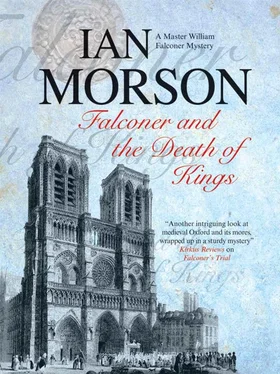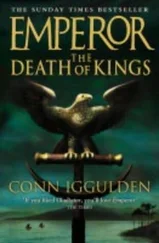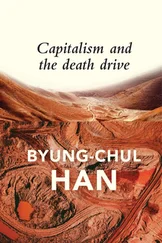Ian Morson - Falconer and the Death of Kings
Здесь есть возможность читать онлайн «Ian Morson - Falconer and the Death of Kings» весь текст электронной книги совершенно бесплатно (целиком полную версию без сокращений). В некоторых случаях можно слушать аудио, скачать через торрент в формате fb2 и присутствует краткое содержание. Год выпуска: 2010, Издательство: Severn House Publishers, Жанр: Исторический детектив, на английском языке. Описание произведения, (предисловие) а так же отзывы посетителей доступны на портале библиотеки ЛибКат.
- Название:Falconer and the Death of Kings
- Автор:
- Издательство:Severn House Publishers
- Жанр:
- Год:2010
- ISBN:нет данных
- Рейтинг книги:5 / 5. Голосов: 1
-
Избранное:Добавить в избранное
- Отзывы:
-
Ваша оценка:
- 100
- 1
- 2
- 3
- 4
- 5
Falconer and the Death of Kings: краткое содержание, описание и аннотация
Предлагаем к чтению аннотацию, описание, краткое содержание или предисловие (зависит от того, что написал сам автор книги «Falconer and the Death of Kings»). Если вы не нашли необходимую информацию о книге — напишите в комментариях, мы постараемся отыскать её.
Falconer and the Death of Kings — читать онлайн бесплатно полную книгу (весь текст) целиком
Ниже представлен текст книги, разбитый по страницам. Система сохранения места последней прочитанной страницы, позволяет с удобством читать онлайн бесплатно книгу «Falconer and the Death of Kings», без необходимости каждый раз заново искать на чём Вы остановились. Поставьте закладку, и сможете в любой момент перейти на страницу, на которой закончили чтение.
Интервал:
Закладка:
The Franciscan friary was across the other side of the quarter that housed the schools and lodgings that made up the university. Paris was more or less split in two by the River Seine, which ran east to west. To the north of the river the commercial city huddled within Philip Augustus’s walls. On the south bank sprawled the tentacles of the university. And in the centre of the river lay the beating heart of the city, dominated by the Royal Palace and the great cathedral of Notre-Dame. It was from the top of the cathedral that the boy — Paul Hebborn — had plummeted yesterday.
As Falconer reached the square and turned west towards the convent of the Mathurins, he asked Thomas about the incident.
‘The English boy — Hebborn — what do the rumours say about his fall?’
Rendered breathless by the pace of their walk, Thomas did his best to summarize what the students he had spoken to had said.
‘For many it is just an accident, though why he came to be at the top of the tower no one could say. But there are some who say he was lured there and pushed off.’
‘And did they give any justification for his murder?’
Thomas stopped and shrugged even though it was a pointless gesture as Falconer wasn’t looking at him. He was way ahead of Thomas and already crossing the Rue de la Harpe towards St-Cosmé. Thomas lifted the hem of his black robe and scurried on. He had to shout to make himself heard over the bustle and noise of the great avenue.
‘Now as for the cause of the murder, you can have as many theories as there are stars in the firmament. Some of them quite gory.’
He had to shoulder his way through a knot of men standing around a game of knuckle bones being played out at their feet. Money was changing hands, and one ruffian elbowed Thomas away, cursing him in such coarse French that the educated clerk hardly understood a word. Thomas held his hands up to the red-faced gambler in a palm-out gesture of peace, and hurried on. Falconer, meanwhile, had reached their destination — the great edifice of the house of the Friars Minor, wherein Friar Roger Bacon was incarcerated. It stood hard by the western wall of the city and was as severe and stark a building as the order could build. The church stood on the road, but it was down the side lane that Falconer went, followed by Thomas Symon, to knock on the door of the friary itself. They were admitted by a solemn-faced friar in a brown robe, who had barred their passage before. Now he did not seem at all surprised that they had come to see Roger Bacon. He simply led them through the cloister to where the friars’ individual cells were arrayed. It seemed that, after being stonewalled for two months, the door was to be opened with no explanation for the delay. The friar did indeed indicate a door that already stood ajar on the far side of the cloister, and simply walked away. Falconer walked over, his heart in his mouth, pushed on the door and called out.
‘Roger?’
FIVE
Sir John Appleby, fresh from England, was ushered into the presence of his new king. He had not seen Edward for nearly four years, and he was pleased by the manly bearing his monarch seemed to have acquired. Edward had always been tall — hence his nickname ‘Longshanks’ — but to Appleby’s eyes he now had that intangible attribute: presence. The king was standing when Appleby entered the chamber he occupied in the French king’s palace on the Ile de la Cité. And his wife Eleanor stood by his side. She too looked every inch a queen — long and slender, but with the shapeliness of a woman who had borne children. He lingered for a moment on her full lips, and thought of the story of them sucking the poison from her husband’s wounds. Almost reluctantly, Appleby’s eyes turned back on the king. His black hair hung in full swathes either side of his tanned face. The sign of a crusader, who had spent time under the blazing sun in the Holy Lands. His symmetrical features were marred only by that droopy eyelid, which was the mark of his family. The old king had had the same feature also. Edward held his muscular and long right arm out towards Sir John, and when he spoke Appleby detected a slight lisp that he had been unaware of before. But then he had not been this close to the new king when he had been prince.
‘Welcome, Sir John. I understand the Archbishop of York and Robert Burnell are anxious to see my return.’
‘Indeed, sire, they are keen to shuffle off the responsibilities they have so readily assumed.’
The two men Edward mentioned had assumed the regency of England on the death of Henry of Winchester, and were ensuring a smooth transition of monarchy to his son. In the past, there might have been a power struggle with the one who was to inherit out of the country. Edward had felt confident, though, that all would be well, and he was in no hurry to return. Philip of France had hinted that there was trouble in Edward’s holdings in Gascony, and he meant to sort it out first. The king sat, and indicated that Sir John could do so too. He was growing in confidence in his new role.
‘I am sure they do. But first, tell me of the court and the goings-on in England. Four years is a very long time.’ As Eleanor poured Sir John some Rhenish wine, Edward leaned closer to the knight. ‘Tell me about my father’s death.’
Appleby put on a suitably solemn face and talked of Henry’s last days.
‘He bore his illness nobly, sire, and was much distracted by an Oxford master, who had your father play the part of a coroner. His late majesty discovered, in the most marvellous manner, who it was had murdered his wardroper. Of course, he was guided by this master, who it is said is clever at solving that most heinous of crimes.’
Thoughtful, Edward leaned back in his chair.
‘I would know this man. I may have some business for him, if he is still at court when I return to England.’
‘Oh, you may speak to him sooner than that, sire. The new chancellor of Oxford University sought leave of the archbishop to send him to the university here. It was on matters of philosophy that I cannot begin to understand. But what I do know is that Master William Falconer has been here these two months already.’
The cell that Falconer and Symon entered was dimly lit by a single candle, and made even gloomier by the lack of a window. As Thomas’s eyes adjusted to the low light, he slowly became aware of what was around him. He gasped in astonishment. The tiny cell was filled with books and parchments stacked floor to ceiling, and every surface was covered with the same clutter. Thomas had never seen so many books outside of one of the monastic libraries in Oxford. In the centre of this chaos, at a small table where the solitary candle flickered, sat a tonsured man hunched over a manuscript. He was busily scribbling and seemed to be ignorant of their presence. Falconer was less surprised than his young scribe at such a scene.
‘Roger, have you no time to greet an old friend?’
The Franciscan friar paused in his feverish scribbling, laid down his quill and turned on his stool.
‘William, they told me you were in Paris. What took you so long to come and visit? Did I not make it clear to Pecham how urgent the matter in hand was?’
Falconer looked at his old friend, whom he had not seen for some years. Time has been less kind to Roger Bacon than it has been to me, he thought. The friar’s hair was completely white, and his features were drawn and of a pasty hue. He had clearly spent too much time locked in a windowless cell. But behind the pallor, Bacon’s eyes sparkled with intelligence. It was the Roger of old, as driven and opinionated as ever. Falconer strode across the small room and hugged Bacon, who had risen stiffly from his stool. Falconer saw that the friar had added a stoop to his catalogue of ageing, but his demeanour was as bright and lively as before. He pushed Falconer out to arm’s length and surveyed his friend.
Читать дальшеИнтервал:
Закладка:
Похожие книги на «Falconer and the Death of Kings»
Представляем Вашему вниманию похожие книги на «Falconer and the Death of Kings» списком для выбора. Мы отобрали схожую по названию и смыслу литературу в надежде предоставить читателям больше вариантов отыскать новые, интересные, ещё непрочитанные произведения.
Обсуждение, отзывы о книге «Falconer and the Death of Kings» и просто собственные мнения читателей. Оставьте ваши комментарии, напишите, что Вы думаете о произведении, его смысле или главных героях. Укажите что конкретно понравилось, а что нет, и почему Вы так считаете.












